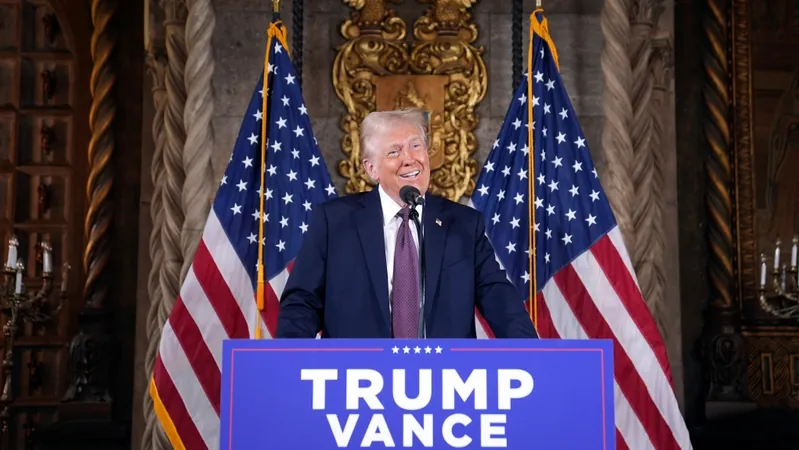
Trump Proposes Renaming the Gulf of Mexico as 'Gulf of America': What's at Stake?
2025-01-08
Author: Liam
Why the Name Change?
Trump's long-standing contentious relationship with Mexico over various issues—particularly border security and trade—has likely influenced this proposal. He has been vocal about building a wall along the U.S.-Mexico border and has been at odds with the neighboring country over tariffs and immigration policies. The Gulf of Mexico, often regarded as the United States' "Third Coast," marks the coastline of five southeastern states, with its name derived from the Spanish version, "El Golfo de Mexico."
Interestingly, there are naming discrepancies between nations regarding bodies of water; Americans refer to the river marking the border with Mexico as the Rio Grande, while Mexicans call it Rio Bravo.
The Mechanics of Renaming: Can It Happen?
While the idea of renaming the Gulf of Mexico might sound simplistic, it is far from a unilateral decision. It requires a consensus among countries and various international organizations, particularly the International Hydrographic Organization (IHO), responsible for naming and surveying seas and oceans globally. Interestingly, this organization has a history of different countries using varying names for the same geographical features in their documents.
For instance, in 2015, former President Barack Obama successfully renamed Mount McKinley to Denali. However, Trump's desire to reverse this name change signifies ongoing debates over the ownership of such titles.
Following Trump's announcement, Rep. Marjorie Taylor Greene of Georgia quickly suggested she would initiate legislation to formally change the name, aiming to address implications for new maps and government materials. This highlights that political efforts surrounding geographical designations can have broader administrative consequences.
The Historical Context Behind the Name
The Gulf of Mexico's name has a historical pedigree, dating back over four hundred years, with origins believed to trace back to a Native American city called "Mexico." It's important to acknowledge that names of places carry not just geographic importance but also cultural and historical significance.
Past Naming Controversies
Renaming the Gulf of Mexico is not a new idea. In 2012, a Mississippi legislator introduced a bill to change parts of the gulf that touched Mississippi's coastline to "Gulf of America." This proposal was later revealed to be more of a satirical commentary than a serious agenda.
Moreover, comedian Stephen Colbert had previously joked about renaming the gulf due to the Deepwater Horizon oil spill, claiming, "We broke it, we bought it."
Is This Part of a Larger Pattern?
Internationally, disputes over place names are nothing new. The Sea of Japan is fraught with contention among Japan and its neighbors, North and South Korea, while the Persian Gulf has also seen disputes regarding its nomenclature, notably involving Iran's interests. Such issues underline a broader question of national identity and territorial claims, particularly in disputed regions.
It's clear that Trump's proposal to rename the Gulf of Mexico is layered with political implications that echo beyond mere geography. As discussions unfold, the response from both the American public and international community will likely shape the future narrative surrounding this proposal. This controversy opens up a broader dialogue about the impact of names and the tangled histories behind them in today's global context. Stay tuned as this story develops!



 Brasil (PT)
Brasil (PT)
 Canada (EN)
Canada (EN)
 Chile (ES)
Chile (ES)
 Česko (CS)
Česko (CS)
 대한민국 (KO)
대한민국 (KO)
 España (ES)
España (ES)
 France (FR)
France (FR)
 Hong Kong (EN)
Hong Kong (EN)
 Italia (IT)
Italia (IT)
 日本 (JA)
日本 (JA)
 Magyarország (HU)
Magyarország (HU)
 Norge (NO)
Norge (NO)
 Polska (PL)
Polska (PL)
 Schweiz (DE)
Schweiz (DE)
 Singapore (EN)
Singapore (EN)
 Sverige (SV)
Sverige (SV)
 Suomi (FI)
Suomi (FI)
 Türkiye (TR)
Türkiye (TR)
 الإمارات العربية المتحدة (AR)
الإمارات العربية المتحدة (AR)